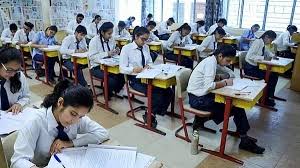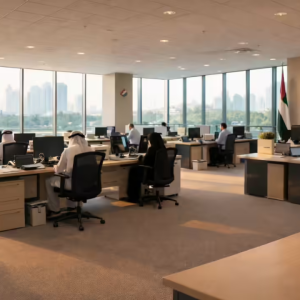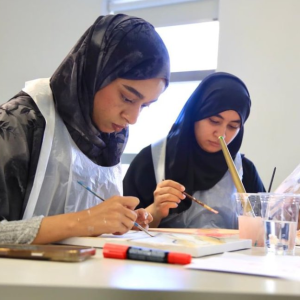A Bold Step Towards Student-Centered Learning
The education system in the United Arab Emirates is once again taking a bold leap forward. Starting from the 2025–26 academic year, students across all grades will no longer sit for second-term exams. This decision is more than just a policy change; it represents a significant shift towards creating a learning environment that values growth, creativity, and student well-being over traditional exam pressure.
For decades, exams have been the measure of student performance, shaping not just grades but also confidence and motivation. By abolishing second-term exams, the UAE is breaking away from the old mold and placing students at the heart of education reform. Parents, teachers, and most importantly, students are now preparing for a new chapter in learning that focuses on skills, application, and holistic development rather than repetitive test cycles.
Why The UAE Chose To Remove Second-Term Exams
Education leaders in the country have long studied the impact of constant exam pressure on children. The repetitive nature of term-based exams often made students feel like they were stuck in a cycle of studying only to pass the next test. Instead of enjoying the process of learning, many children were left overwhelmed, stressed, and sometimes disconnected from the joy of discovery.

By removing second-term exams, the UAE aims to give students more time for in-depth learning. Instead of memorizing facts for the sake of short-term results, students will now be encouraged to explore subjects in meaningful ways, engage in projects, and build practical knowledge. This is a change that aligns with the nation’s vision of nurturing creative, adaptable, and emotionally strong future leaders.

What Will Replace The Second-Term Exams
A natural question arises: if second-term exams are being removed, how will schools assess students? The answer lies in continuous and comprehensive evaluation. Teachers will focus more on class participation, assignments, projects, and hands-on activities that reflect real understanding rather than rote learning.

For example, instead of sitting through another round of tests in the middle of the year, a student may be asked to work on a science project, present research, or collaborate with peers on a creative assignment. This shift allows for broader assessment of skills—critical thinking, communication, teamwork, and problem-solving—that are essential in today’s world but cannot always be measured through exams.
Reducing Stress And Improving Mental Health
One of the strongest motivations behind this change is student well-being. Educational reforms globally are paying more attention to the mental health of young learners, and the UAE is no exception. School years are some of the most formative years in a child’s life, and constant exam cycles have often led to anxiety, stress, and even burnout.
By removing the second-term exam, schools can create a healthier atmosphere where learning feels less like a race and more like a journey. Students will be able to focus on mastering concepts rather than cramming information, and teachers can dedicate more time to guiding students individually rather than preparing them for yet another test.
How Parents Are Reacting To The Change
Parents across the country have shared mixed emotions, but the majority welcome the reform. Many families understand the stress exams bring and see this as a step towards balance. Parents who have watched their children struggle with sleepless nights and endless revision now feel reassured that their child’s progress will be measured in more human and meaningful ways.

However, there are also parents who worry whether fewer exams might affect discipline or competitiveness. For them, reassurance lies in the fact that final exams and overall yearly assessments will still continue, ensuring academic rigor remains. The change is not about reducing standards but about creating smarter, more effective ways to measure achievement.
Teachers As Key Drivers Of The Transition
For teachers, this new system offers both opportunities and challenges. On one hand, they gain the freedom to be more creative in the classroom. Without the constant pressure of preparing students for mid-year exams, teachers can design lessons that are more engaging, interactive, and practical. On the other hand, it also places greater responsibility on teachers to ensure fair and consistent evaluation throughout the year.
Many teachers are optimistic about this transition. They see it as a chance to focus on teaching as an art rather than a rigid system. It also gives them the scope to develop closer relationships with students, observing not just what a child can memorize but how they think, question, and grow.
Aligning With Global Education Trends
The UAE’s move is not an isolated decision but part of a larger global trend in education. Across the world, there is growing recognition that rigid exam systems are not the best way to prepare students for the future. Countries are rethinking traditional methods and moving towards project-based learning, skill-building, and emotional intelligence.
By eliminating second-term exams, the UAE is positioning itself as a pioneer in modern education reforms. It shows that the country is not afraid to challenge the status quo and is committed to developing an education system that keeps pace with the needs of the future workforce.

More Time For Creativity And Extracurricular Activities
Another advantage of removing second-term exams is that it frees up valuable time in the school calendar. Instead of spending weeks preparing, revising, and sitting through exams, students can now engage in extracurricular activities, sports, and creative pursuits. These areas often take a backseat when academic exams dominate the year, but they are just as crucial for shaping confident, well-rounded individuals.
Students interested in arts, music, drama, or sports will now have more opportunities to shine. Schools can use this time to encourage talent, leadership, and teamwork—qualities that last much longer than exam scores.
A New Perspective On Success
For generations, success in education has been narrowly defined by exam marks and report cards. The abolition of second-term exams is a chance to rewrite this narrative. Success will now mean more than just scoring high; it will reflect how students grow, adapt, and use their knowledge in real life.
This new perspective encourages students to see learning as a lifelong process rather than a short-term competition. It helps children understand that grades are important, but they are not the only measure of intelligence or potential.
Looking Ahead: The Future Of UAE Education
The decision to abolish second-term exams marks a significant turning point, but it is only the beginning. As schools implement this change in 2025–26, the education community will continue to adapt, innovate, and refine the process. Parents and students can expect further improvements in teaching methods, learning environments, and opportunities for holistic development.
The long-term vision is clear: an education system that not only prepares students for higher studies and careers but also nurtures individuals who are creative, resilient, and compassionate. This is the kind of vision that can empower a generation and set a global benchmark.

Final Thoughts
The removal of second-term exams in the UAE is more than an academic reform—it is a statement of intent. It shows that the country values the well-being and growth of its students as much as their academic performance. By prioritizing learning over testing, the UAE is sending a powerful message that education should be about curiosity, creativity, and confidence.
As families, teachers, and students prepare for this transition, there is excitement, relief, and anticipation for what lies ahead. A new academic chapter is opening, one where students can learn with less fear and more freedom, paving the way for a brighter, healthier, and more meaningful future.
Do follow UAE Stories on Instagram













